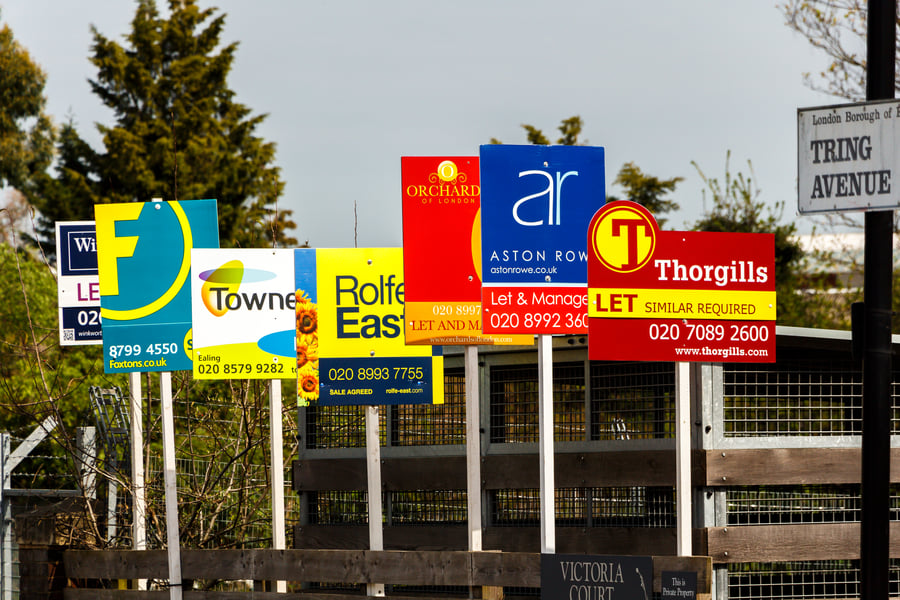The Halifax has found that the average house price dipped once again in July.

UK house prices have fallen for a second month with July registering a decline of 0.2%, the latest Halifax House Price Index has found.
However looking at the last quarter (May to July) house prices were 0.4% higher than in the three months before (February to April) higher than in the same three months a year earlier.
July’s annual change figure of 4.1% flatters due to the fact that there was relatively low growth in the corresponding period in 2018.
Russell Galley, managing director, Halifax, said:“The average UK house price fell slightly for a second month, as the market continues to tread water with marginal increases or decreases in each monthly period.
"That said, it’s worth remembering that while economic uncertainty continues to weigh on the market, the overall trend actually remains one of comparative stability, with average prices down by less than £600 over the last three months.
“We have seen a reported drop off in the number of properties sold during the early months of summer, which may lead some to speculate a downturn is on the horizon. However, new buyer enquiries are up, and favourable mortgage affordability – driven by low interest rates and strong wage growth – should continue to underpin prices for the time being.
“In the longer-term, we believe there is unlikely to be a step change in market activity until buyers and sellers see some form of resolution to the current economic uncertainty.”
Andrew Montlake, managing director at Coreco, said: “The quarterly rate of growth, at 0.4%, is the most accurate portrayal of the market, namely its head is just above water.
“Comparative stability is a fair summary, as the economic fundamentals remain strong, mortgage rates cheap and low supply is propping up house prices. Equally, with the odds of no-deal shortening by the day, it’s crunch time for UK bricks and mortar. The impact of no-deal on the UK property market is thick in the air.
“The consensus appears to be that the property prices will suffer if we exit the EU without a deal. But if 'no-deal' is more damp squib than end of the world then the property market could rediscover its mojo. Of course, some suspect Boris is bluffing and that a deal will still happen, which would again be a positive for the market.
“What we can be sure of is that, with so many unknowns in play, most households will sit tight during the next two to three months and transactions tail off. Another reason many households will sit tight in the short-term is the potential for major changes to the stamp duty regime, which could be a game changer for buyers.
“In the meantime, remortgage activity remains strong as households brace themselves for a period of potentially strong turbulence.”
Mark Harris, chief executive of mortgage broker SPF Private Clients, added: "It is still very much steady as she goes for the housing market. The summer is always quieter as people head off on their holidays but with new buyer enquiries up, there are encouraging signs that business may pick-up in the autumn.
"However, until the Brexit deadline of 31 October has passed, it seems very unlikely that there will be a serious uptick in activity. Even then, we may also see people holding fire in anticipation of Boris Johnson reforming stamp duty.
"Encouragingly, mortgage pricing continues to be extremely competitive. A number of lenders have cut rates again, while others are tweaking criteria to appeal to more customers. However, pulling together a deposit is still the biggest hurdle facing many buyers."



